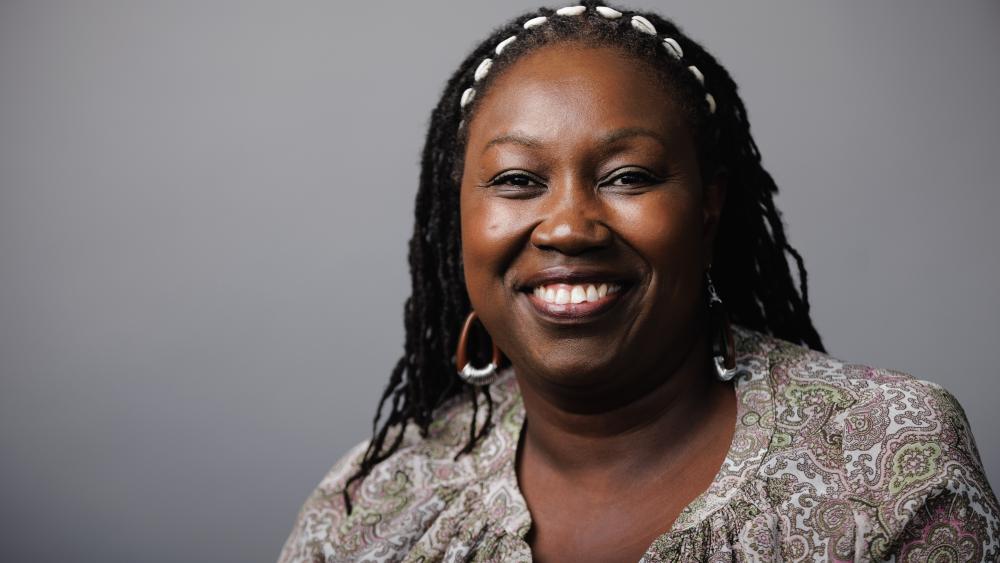Dr Sarah Njeri

Key information

- Roles
- Department of Development Studies Lecturer in Humanitarian and Development Studies Program convenor MSc Humanitarian Action Online
- Department
- Department of Development Studies
- Qualifications
- MA, PhD (Bradford)
- Subject
- Development
- Office
- C419
- Email address
- sn42@soas.ac.uk
Biography
Sarah is a peace and conflict scholar with degrees in conflict resolution and peace studies from the University of Bradford’s Peace Studies Department.
Her research has generated critical insights on peacebuilding and humanitarian policies and practise. Prior to joining SOAS, she was a Research Fellow with the Humanitarian Policy Group at ODI, and before that was a post-doctoral research associate at the African Leadership Centre at King’s College London. She has experience of working and researching on conflict prevention, post conflict peacebuilding, humanitarian disarmament, advocacy and development-related issues in Somaliland, Kenya, Ethiopia, Angola, Sierra Leone, Tanzania and Cambodia. Current themes of interest include, peacebuilding, post-conflict reconstruction, environmental peacebuilding, Mine Action, humanitarian disarmament, and climate resilience.
Her research is inherently interdisciplinary and combines different methodological approaches that foregrounds empirical investigations and local knowledge. Her research sits at the intersection between academia, policy and practice. She applies a critical lens to research and in doing so challenges prevailing approaches to implementation modalities of humanitarian, development and post conflict peacebuilding programs especially within the subsector of Mine Action. Her previous research challenges the dominant critique on liberal peacebuilding which generalizes the failure of interventions without looking into the nuances of these on implementation modalities in difficult/challenging/non-conforming post conflict contexts.
This research examined the implementation of humanitarian mine action programs within the Somaliland which exemplifies such challenges. Both Mine Action research as a topic and Somaliland as a context for academic research have been at the peripheral especially from within peace research. Academic engagement on issues of Explosive Remnants of War extensively focuses on the technological advances towards clearance methods. This usually converges in the fields of engineering and military related research. Her research and teaching aims at bringing Mine Action back into the academic discourse especially within humanitarian and development studies.
Sarah embeds advocacy in her work in various ways; she seeks to redress the invisibilization and marginalisation of voices and knowledge from the Global South especially and including Early Career Researchers. Her work on this topic has been funded by two grants by the British Academy in 2019 and 2024 and through the SOAS ISPF internal research grant.
Sarah further maintains an active engagement in advocacy within the humanitarian disarmament space through her role as a trustee of REVIVE Campaign, the Conflict and Environment Observatory (CEOBS) organisation, a research charity working to reduce the harm to people and ecosystems from armed conflicts and military activities. These reflect her academic and advocacy interests. She also sits on the Board of the Environmental Peacebuilding Association as the Africa Regional Director.
Key publications
Sarah Njeri is the co-editor of Global Activism and Humanitarian Disarmament published by Palgrave, Macmillan; a book that analyses the politics of the humanitarian disarmament community - who have successfully achieved international treaties banning landmines, cluster munitions and nuclear weapons, as well as restricting the global arms trade.
Sarah Njeri has published in key journals including Peacebuilding and the Journal of Peacebuilding & Development Journal among others.
Research interests
- Peacebuilding
- Post-conflict reconstruction
- Environmental peacebuilding
- Mine Action
- Humanitarian disarmament
- Climate resilience



